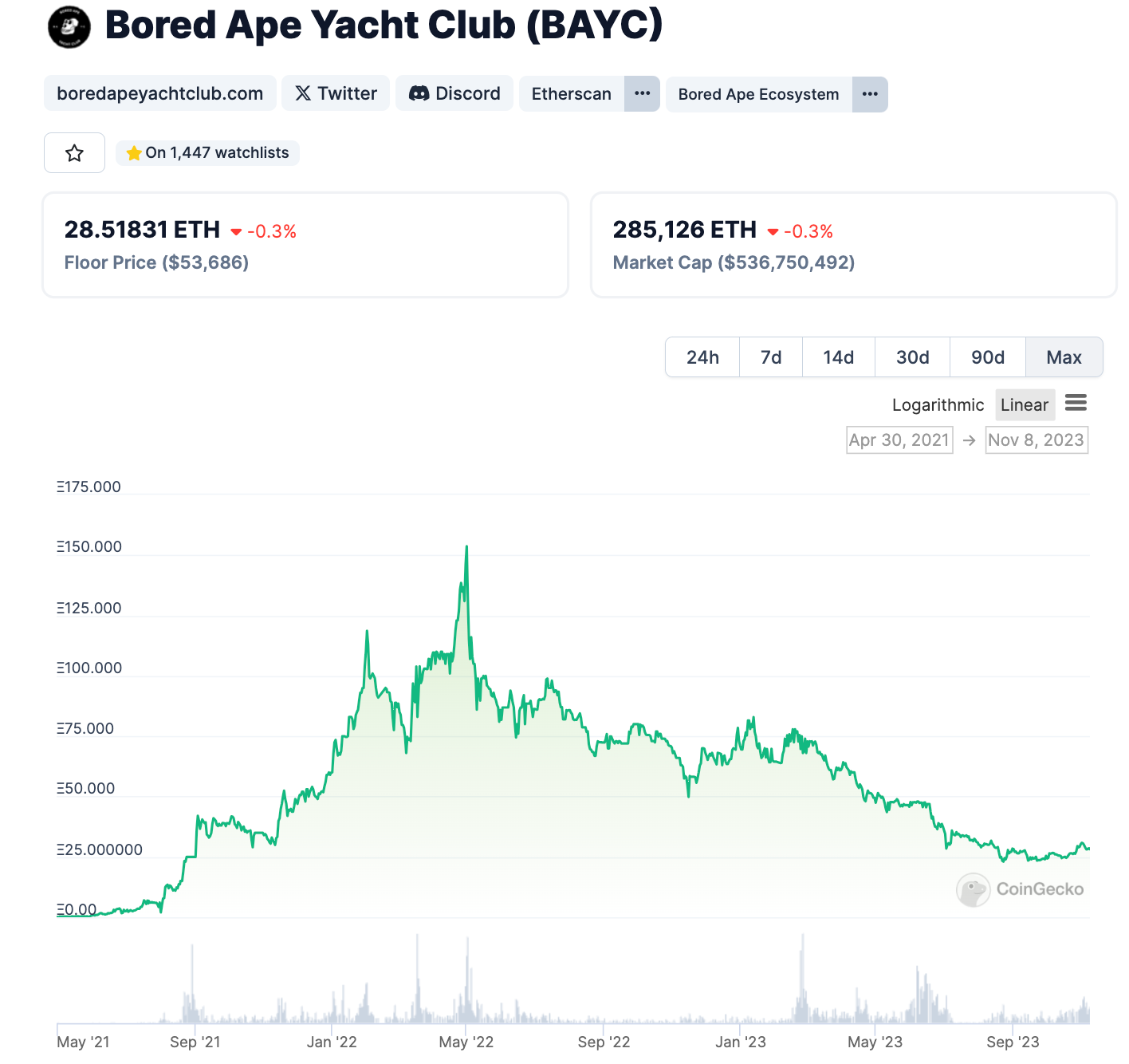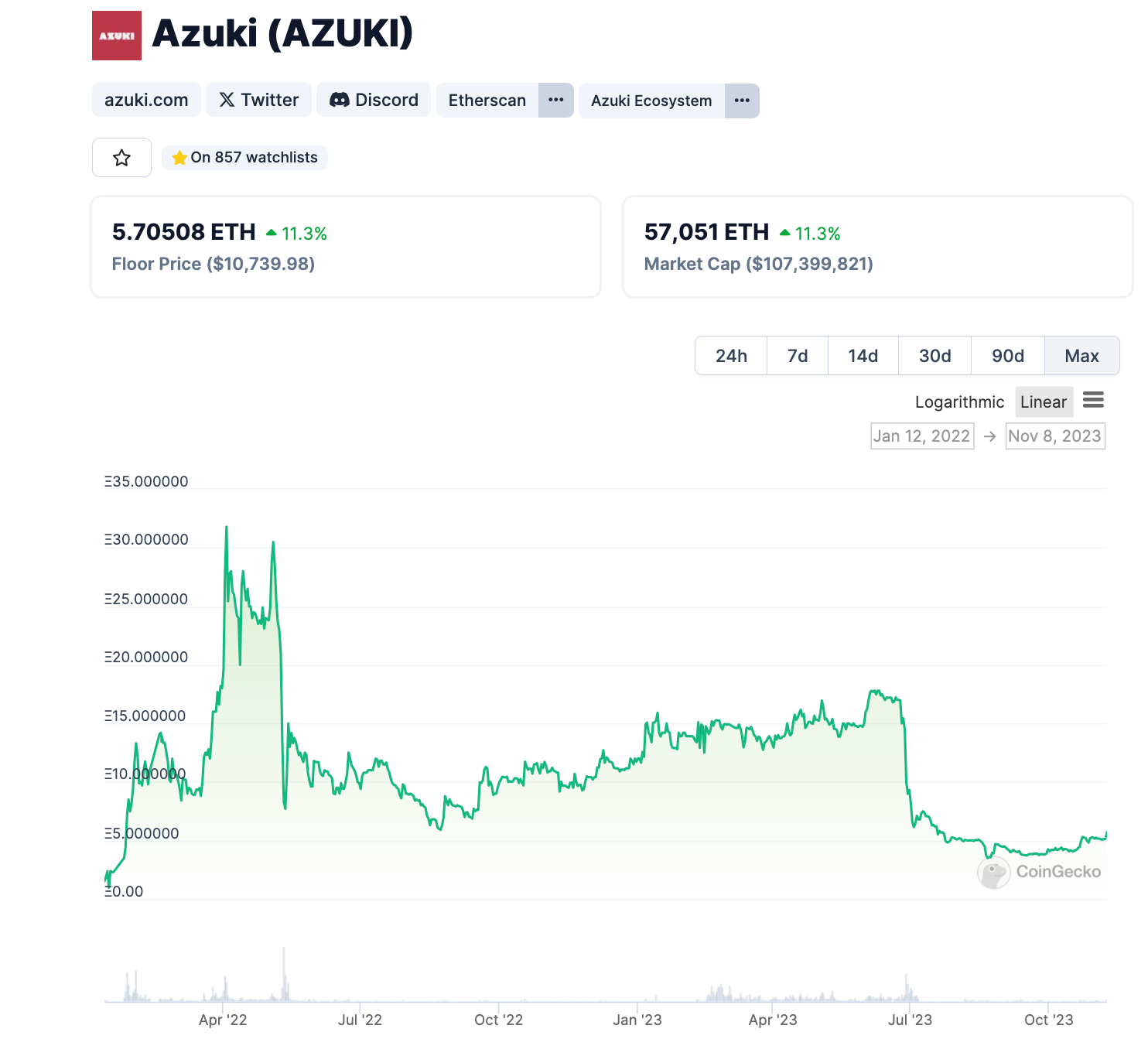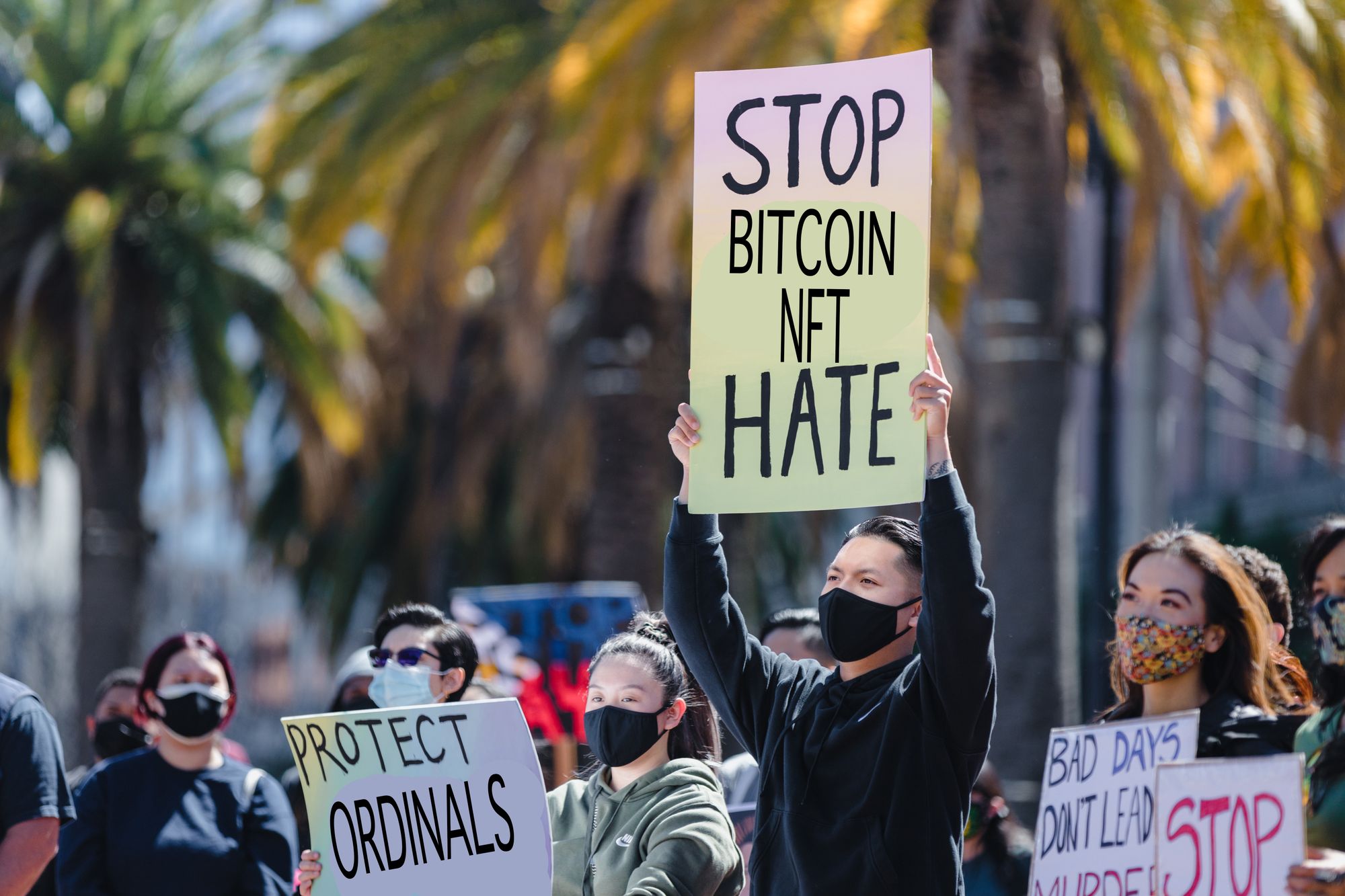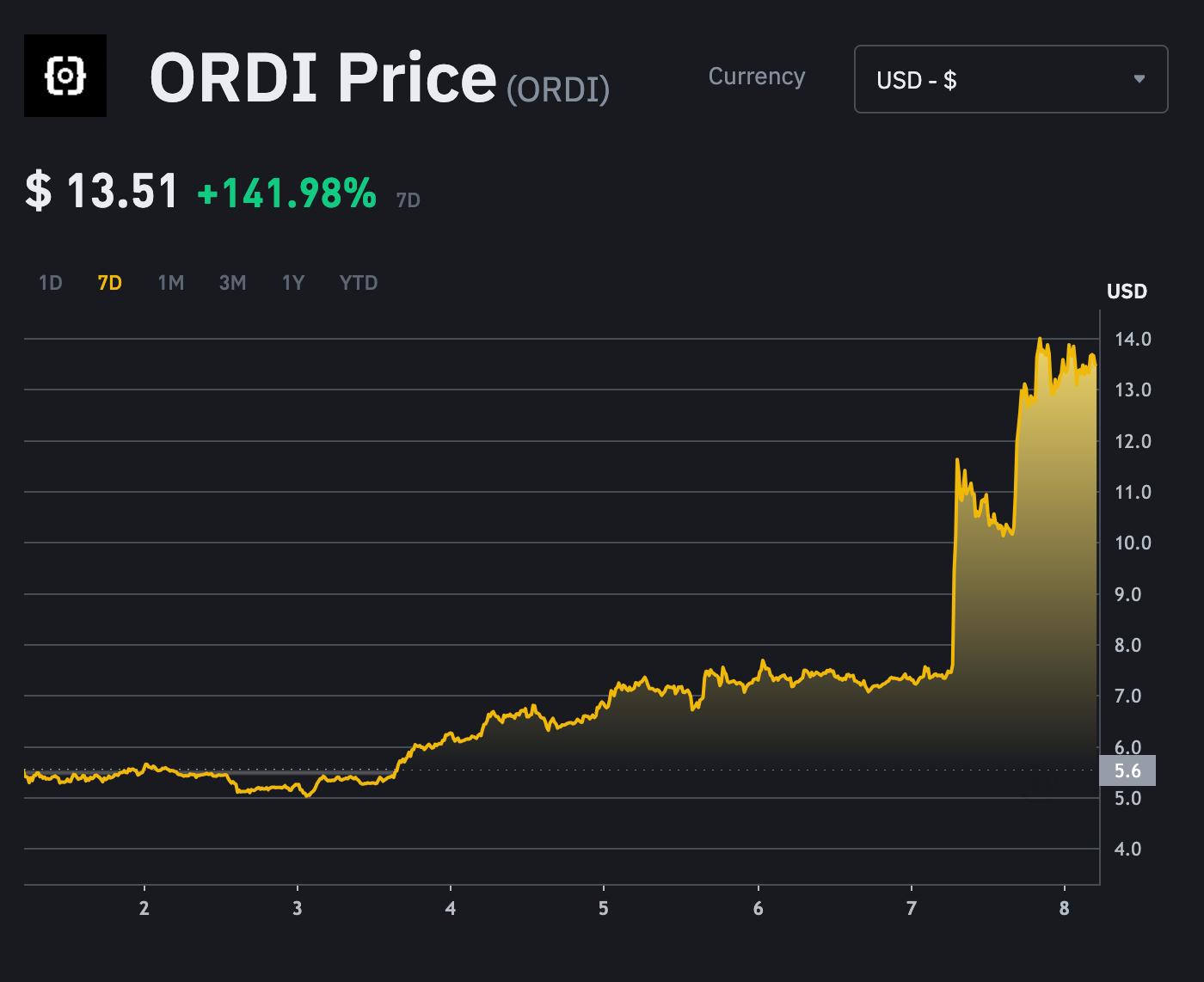Table of Contents
Remember NFTs? You'd be forgiven for thinking they're not really a thing anymore... Except they kind of are...
The dismissive perception of NFTs in today's age is far from unfounded. Within the past week, NFT marketplace OpenSea has announced a 50% staff cut whilst one of its biggest investors announced a stake cut of 90%. Coatue Management, a New York–based hedge and venture fund, reduced the value of its $120 million stake in the company to $13 million in Q2.
1/9
— Devin Finzer (dfinzer.eth) (@dfinzer) November 3, 2023
OpenSea is making some big changes today to focus on the next version of our product.
What's more, NFT minting fell to an all-time low of US$17.55 million in September whilst the floor prices of blue chip NFTs such as BAYC and Azuki are down 81% and 83% respectively from their 2022 highs.


Dead, D'oh or Dough?
At a time when institutional Web3 attention has stolen the limelight, NFTs are subtly re-emerging. On Monday, daily NFT trading volume hit a three-month high at $19.1 million, according to analytics platform Dune.
In part, the achievement is attributed to BAYC co-founder Wylie "Gordon Goner" Aronow, who purchased a CryptoPunks NFT (#7458) on the day itself for 600 ETH ($1.1 million). $3.6 million worth of CryptoPunks were sold on Monday.
— GordonGoner.eth (Wylie Aronow) (@GordonGoner) November 6, 2023
Another NFT driver this week came from an unlikely source: The Simpsons. Although its latest "Treehouse of Horror" episode takes a satirical approach that pokes fun at the NFT space, the episode has ironically revived degen energy.
THE SIMPSONS "NFT" EPISODE pic.twitter.com/FeSghmDYqg
— ESSENTIAL (@essentialceo) November 6, 2023
Titled "Wild Barts Can’t Be Token," Homer mints Bart as an NFT and unintentionally loses him to the digital world. Despite Homer and Marge's dismay, the value of Bart's NFT soars to $1.5 million. The episode follows Marge's quest to restore Bart to the real world, with the help of Kylie Jenner.
Degens saw The Simpsons' satirical episode with opportunistic eyes and before too long, a Springfield Punks NFT began trending. Within 24 hours of the episode airing, the CryptoPunks-Simpsons mashup, a free mint, saw $2.5 million in sales.
AIRDROP CLAIM IS NOW LIVE 📣
— Springfield Punks (@SpringPunks_NFT) November 6, 2023
If you commented your wallet on any of our tweets, you might be able!
You must join TG: https://t.co/AOsPVOoBgz
If you didn't, drop you ETH Wallet now 👇 pic.twitter.com/e2mJH4olQK
Although Springfield Punks reached volumes of 240 ETH and a floor price of 0.35 ETH, the NFT surged as quickly as it had cratered. Its current floor price now sits at a measly 0.047 ETH, echoing the good old days of degen pump-and-dumps.
Unordinary Ordinal Surge
Just like their Ethereum NFT counterparts, Bitcoin NFTs AKA Ordinals were once all the rage. Although the existence of Bitcoin NFTs proved divisive in the Bitcoin community, its ability to enrage Bitcoin Maxis was powered by their deemed revolutionary capability.
Unlike Ethereum-based NFTs, Ordinals allows users to store all the data to a Bitcoin NFT such as full songs, videos and apps up to the full size of a Bitcoin block.

Sadly, with the cooling of the market throughout most of 2023, so came the apathetic attitude towards Ordinals. As recently as August, Bitcoin Ordinals saw a 97% drop in sales within three months from $452 million to just $3 million.
Nonetheless, the transaction volume of Ordinals has surged to its highest levels since May, now at $14.7 million. 60% of daily transactions occurred on OKX, whilst Binance's recent support of ORDI - the first BRC-2o token - has caused its price to surge by over 140%.

Elsewhere,
- Circle Internet Eyes 2024 for Potential IPO: The company behind the USDC stablecoin is reportedly considering an Initial Public Offering (IPO) early in 2024. The firm, which was valued at $9 billion in a previous attempt to go public through a SPAC deal in 2022, is currently in discussions with advisors to prepare for this potential IPO, Bloomberg reported. The strategic move follows Circle's decision last year to end a merger deal to go public via Concord Acquisition Corp. Circle has notable investors including Goldman Sachs, BlackRock, and Fidelity, and plans to share ongoing financial reports, having appointed Deloitte as its auditor
- Microsoft Store's Fake Ledger Live App Drains User Crypto Wallets: A fraudulent "Ledger Live Web3" app, which appeared in the Microsoft Store, has scammed users out of at least $768,000 in cryptocurrency. The app, present in the store since October 19, was reported for theft just a few days ago. ZachXBT alerted the community about the scam, which led to Microsoft removing the app. Unfortunately, by that time, the fraudster had already transferred a significant amount of cryptocurrency from victims. There were clear red flags, such as a copied description from the legitimate Apple Store app and an obviously fake developer name. One victim reported losing their life savings after inputting their seed phrase into the app. The scam also involved a GitBook page claiming to be an official Ledger product. Despite the signs of a scam, it is uncertain how the app was published on the Microsoft Store, and this incident raises questions about the vetting process for apps on the platform.
- SHIB Token Burn Rate Soars by Over 14,000% Amidst New Community Governance Strategy: Memecoin Shiba Inu's burn rate skyrocketed by over 14,000% following the marketing team's announcement of an inclusive strategy for the coming years, promoting community-driven governance. The surge corresponds with the burning of 173 million SHIB tokens, aiming to reduce supply and potentially increase value as the project seeks greater adoption and utility through strategic partnerships. The Shiba Inu team has been pushing to increase the real-world applicability of the meme coin, via partnerships with TAG Heuer and HSBC among others, potentially influencing its valuation positively as adoption grows.
- SEBA Wins License in Hong Kong: The Swiss crypto bank's Hong Kong subsidiary has been granted a license by Hong Kong's Securities and Futures Commission (SFC). This license allows SEBA Hong Kong to conduct regulated activities, such as dealing and distributing securities, including those related to virtual assets like OTC derivatives and structured products, advising on securities and virtual assets, and managing assets for discretionary accounts in both traditional and virtual assets. The company views this as a significant advancement in its mission to support the global crypto economy and a validation of its trusted and regulated status in the Asia-Pacific region, it said in an announcement. SEBA's global operations include regulated hubs in Switzerland, Abu Dhabi, and now Hong Kong.









